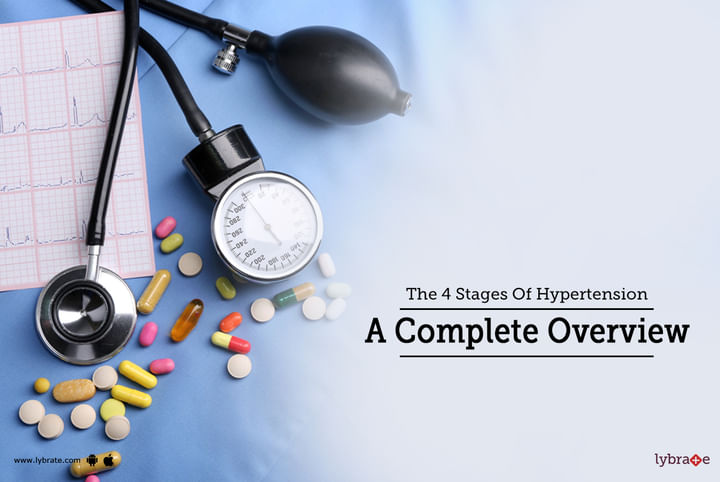The 4 Stages Of Hypertension: A Complete Overview
High blood pressure, or hypertension, is a major risk factor for a variety of serious health problems, including chronic kidney disease, heart disease, eyesight loss, and stroke. Blood pressure is divided into four categories by doctors: normal, prehypertension (mild), stage 1 (moderate), and stage 2 (severe) (severe). The type of treatment you receive is determined by which group your blood pressure regularly falls into when measurements are done.
Measurement Criteria
In the normal range, a ratio (systolic/diastolic) of 120/80 mm hg is used to determine hypertension or high blood pressure. When the ratio is higher than this, hypertension develops.
Primary Hypertension
Hypertension that is caused by the body's own mechanisms is referred to as primary hypertension or essential hypertension. The great majority of hypertensive persons fall under this category. Despite years of research, there has yet to be a proven cause for hypertension. A few examples of lifestyle issues are smoking, excessive alcohol intake, stress, obesity, excessive salt consumption, and insufficient exercise. Dietary and lifestyle changes can help you lower your blood pressure and reduce your risk of hypertension.
Secondary Hypertension
When your blood pressure is produced by an identifiable and potentially reversible source, it is known as secondary hypertension. Some of the underlying causes of secondary hypertension include:
-
Birth control pills, diet supplements, stimulants, antidepressants, and some over-the-counter medications can all cause constriction of the arteries that provide blood to your body.
-
Adrenal gland dysfunction.
-
Hormone anomalies in obstructive sleep apnea
-
Thyroid dysfunction
-
Aortic constriction is a condition in which the aorta narrows.
Resistant Hypertension
Resistant hypertension is a type of high blood pressure that is difficult to control and requires multiple medications. When your blood pressure remains over your treatment target while using three different types of blood pressure drugs, including a diuretic, it's called resistant hypertension. People with resistant hypertension may have secondary hypertension, which the reason is unknown, forcing their doctor to look for other causes. The majority of persons with resistant hypertension may be effectively treated with a combination of medications or by identifying a secondary cause.
Hypertension Malignant
Malignant hypertension is the medical term for excessive blood pressure that damages your organs. This is a life-threatening situation. The most severe form of hypertension is malignant hypertension, which is marked by high blood pressure (typically >180 mm Hg systolic or >120-130 mm Hg diastolic) and organ damage. Malignant hypertension is a medical emergency that demands immediate attention. If you suspect you're suffering a hypertensive emergency, get emergency medical help right once.



+1.svg)
